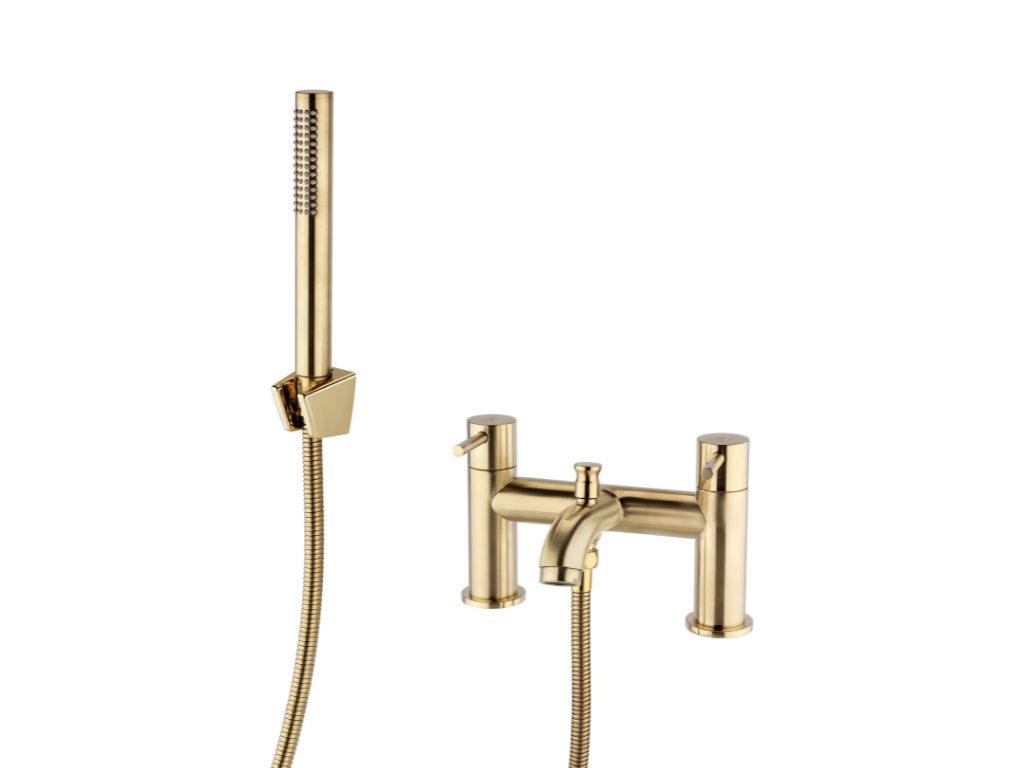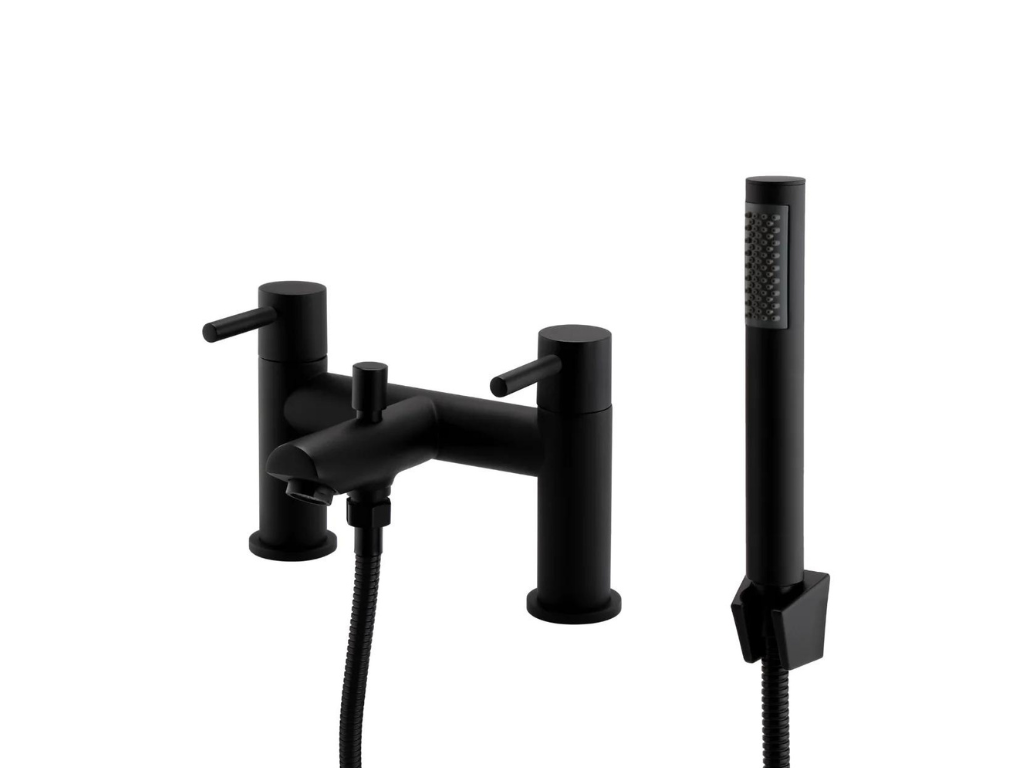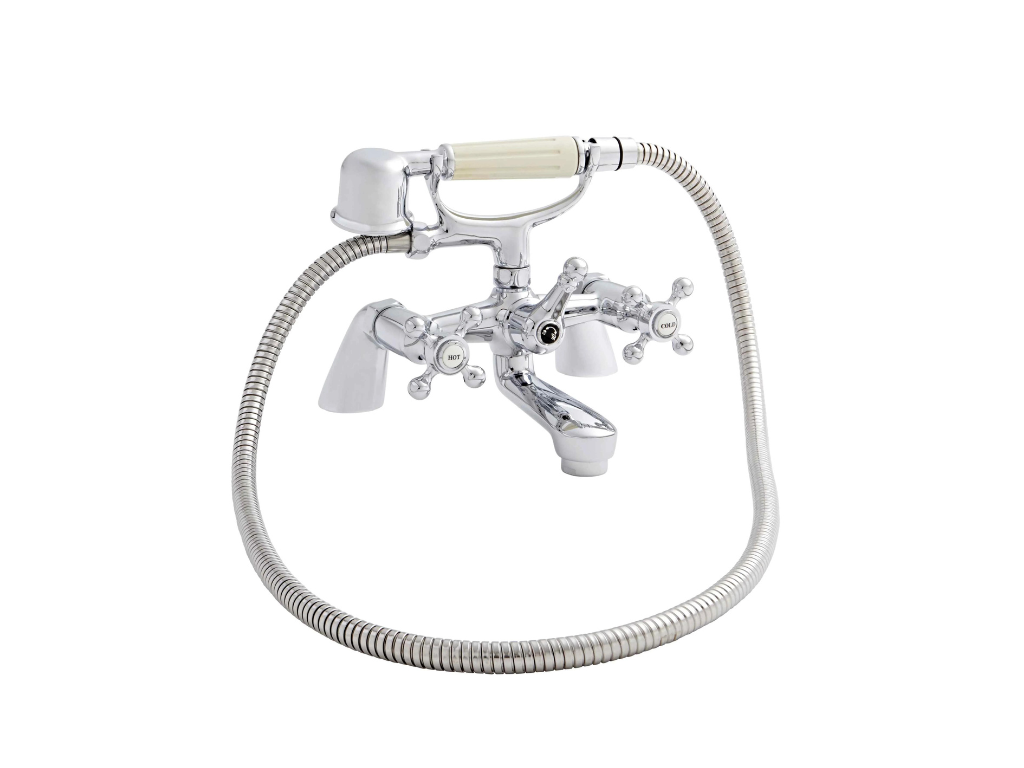8199527694524,
8195139567804,
8199527727292,
8199527628988,
8199527694524,
8199527727292,
8199527628988,
8199527563452,
8195241672892,
5659868266657,
5659870429345,
5659859550369,
5659869216929,
5659859091617,
5659858862241,
5659857846433,
5659868987553,
5659867578529,
5659863351457,
5659860762785,
5659858534561,
5659858108577,
8074633904316,
8074631577788,
8074630987964,
8074631807164,
8074631381180,
8074631151804,
8074630758588,
8074633117884,
8074634035388,
8074633380028,
8074633674940,
8074632200380,
8074633019580,
8074632003772,
8074632724668,
8074632921276,
8074632528060,
8074633248956,
8074634264764,
8074633609404,
8111835873468,
8111835807932,
8111835742396,
8111835709628,
8110581219516,
8110581055676,
8110580924604,
8110580826300,
8110580695228,
8110580564156,
8110580531388,
8110580433084,
8110580367548,
8110580334780,
8110580170940,
8110580039868,
8110579876028,
8110579744956,
8110579712188,
8110579613884,
8077920370876,
8077920338108,
8076503613628,
8076503482556,
8076503417020,
8076503318716,
8076503187644,
8076503089340,
8076503056572,
8076502925500,
8076502859964,
8074705797308,
8074705764540,
8074705699004,
8074705666236,
8074705600700,
8074705535164,
8074705502396,
8074705436860,
8074690756796,
8074690691260,
8074690625724,
8074690560188,
8074690494652,
8074690461884,
8074690429116,
8074690363580,
8074690265276,
8074690232508,
8074690199740,
5659726545057,
6752412467388,
6752382845116,
6752383172796,
5659944026273,
5659858862241,
5659886813345,
5659884617889,
7340818170044,
7340821250236,
7340822986940,
7340813254844,
7343602761916,
7343599616188,
7494993150140,
7341804323004,
7341786235068,
7343364735164,
7343458025660,
7343437906108,
7343429451964,
7343469494460,
7343587721404,
7343585198268,
7343590080700,
7343581659324,
7343593455804,
7343595290812,
7340800442556,
7340809191612,
7341761396924,
7341766803644,
7343498100924,
7343502000316,
7343487353020,
5659933638817,
6752348078268,
6752398180540,
6752397590716,
6752399032508,
6752399655100,
5659847557281,
5659846803617,
5659847295137,
5659874721953,
6752413974716,
5659903393953,
5659825045665,
7412858880188,
7412866515132,
8110580367548,
8074631381180,
8074635509948,
8087796089020,
8087795826876,
8087791206588,
8087790518460,
8087789666492,
8087788454076,
8087772528828,
8087772266684,
8087785177276,
8087783571644,
8087782162620,
8087782228156,
8143681716412,
8143681683644,
8143680995516,
8143680078012,
8143679357116,
8143676670140,
8074605691068,
8074605559996,
8074608509116,
8074608345276,
8074608246972,
8074610081980,
8074610049212,
8143727198396,
8143727722684,
8143726772412,
8143726051516,
8143725953212,
8143725854908,
8143725592764,
8143724839100,
8143723921596,
8143724445884,
8070415548604,
8069521146044,
5659847295137,
5659846803617,
8074636361916,
8074636099772,
8074636034236,
8074635968700,
8074635837628,
8074635673788,
8074635575484,
8074635313340,
5659874721953,
5659736408225,
8074620960956,
8074620829884,
8074620797116,
8074620666044,
8074620600508,
8074620567740,
8074620469436,
8074620403900,
8074620371132,
8074620305596,
8074620240060,
8074620207292,
8074620108988,
8074620076220,
7443350454460,
6752337559740,
5659735916705,
5659874721953,
8074652876988,
8074610704572,
8074610573500,
8074610475196,
8074610376892,
8074610278588,
8074610245820,
8074610213052,
8074609885372,
8074609852604,
8074618896572,
8074647470268,
8074644062396,
8074659627196,
8074659430588,
8074637476028,
8074636853436,
8074636722364,
8074633019580,
8074626662588,
8074626498748,
8074626007228,
8074640556220,
8074640523452,
8074640326844,
8077920370876,
8077920338108,
8074705436860,
8074661724348,
8074661658812,
8074661593276,
8074661527740,
8074654482620,
8074654417084,
8074654351548,
8074654286012,
8074654220476,
8074654154940,
8074654056636,
8074653925564,
8074653860028,
8074653794492,
8074653728956,
8074653663420,
8074653532348,
8074653466812,
8074653401276,
8074653270204,
8074654482620,
8074654417084,
8074654351548,
8074654286012,
8074654220476,
8074654154940,
8074654056636,
8074654023868,
8074653925564,
8074653860028,
8074653794492,
8074653728956,
8074653663420,
8074653532348,
8074653466812,
8074653401276,
8074653270204,
8074653204668,
8074653139132,
8074653106364,
8074653008060,
8074652942524,
8074652909756,
8074652876988,
8074652811452,
8074652778684,
8074652745916,
8074652680380,
8074652647612,
8074652614844,
8074652549308,
8074652516540,
8074652483772,
8074652418236,
8074652385468,
8074652319932,
8074652254396,
8074652221628,
7478474506428,
7478472573116,
8074606248124,
8074605691068,
8074605559996,
8074608836796,
8074608509116,
8074608345276,
8074608246972,
8074610081980,
8074610049212,
8074635575484,
8074635313340,
8074635051196,
8100820844732,
8100820811964,
8100820779196,
8074640457916,
8111835742396,
8111835676860,
8111835709628,
8074640425148,
8074640392380,
8074640294076,
8074610507964,
8074610016444,
8074609066172,
8074609033404,
8074608935100,
8074608902332,
8074608771260,
8074608705724,
8074608672956,
8074608607420,
8074608541884,
8074608443580,
8074608378044,
8074608312508,
8074608214204,
8074608083132,
8074607853756,
8074607820988,
8074607755452,
8074606411964,
8074606379196,
8074606346428,
8074606280892,
8074606215356,
8074606149820,
8074606117052,
8074606051516,
8074605985980,
8074606248124,
8074605691068,
8074605559996,
8074608836796,
8074608509116,
8074608345276,
8074608246972,
8074610081980,
8074610049212,
8074635575484,
8074635313340,
8074635051196,
8100820844732,
8100820811964,
8100820779196,
8074640457916,
8111835742396,
8111835676860,
8111835709628,
8074640425148,
8074640392380,
8074640294076,
8074610507964,
8074610016444,
8074609066172,
8074609033404,
8074608935100,
8074608902332,
8074608771260,
8074608705724,
8074608672956,
8074608607420,
8074608541884,
8074608443580,
8074608378044,
8074608312508,
8074608214204,
8074608083132,
8074607853756,
8074607820988,
8074607755452,
8074606411964,
8074606379196,
8074606346428,
8074606280892,
8074606215356,
8074606149820,
8074606117052,
8074606051516,
8074605985980,
8074647765180,
8074647666876,
8074647634108,
8074647535804,
8074647470268,
8074647437500,
8074647306428,
8074647273660,
8074647208124,
8074647142588,
8074647109820,
8074647077052,
8074647011516,
8074646978748,
8074646913212,
8074646847676,
8074646749372,
8074646683836,
8074646651068,
8074646552764,
8074646225084,
8074646159548,
8074646061244,
8074646028476,
8074645930172,
8074645897404,
8074645831868,
8074645733564,
8074645602492,
8074645504188,
8074645405884,
8074645340348,
8074645307580,
8074645078204,
8074645012668,
8074644979900,
8074644881596,
8074644783292,
8074644717756,
8074644619452,
8074644586684,
8074644553916,
8074644422844,
8074644390076,
8074644324540,
8074644226236,
8074644193468,
8074644160700,
8074644062396,
8074644029628,
7446894772412,
7446872162492,
7427357507772,
7446862037180,
7446860955836,
7446858236092,
7446857154748,
7446859219132,
7446855614652,
7446854500540,
7431837941948,
7431860256956,
7431867859132,
7431831191740,
7431834403004,
7340773638332,
7340775211196,
7340769476796,
7451145961660,
7446826778812,
5659903393953,
5659793752225,
5659793359009,
8074651369660,
8074651271356,
8074651205820,
8074651173052,
8074651107516,
8074651041980,
8074650976444,
8074650878140,
8074650845372,
8074650747068,
8074650681532,
8074650648764,
8074650583228,
8074650517692,
8074650452156,
8074650386620,
8074650353852,
8074650255548,
8074650222780,
8074650124476,
8074650058940,
8074649960636,
8074649927868,
8074649895100,
8074649829564,
8074649764028,
8074649731260,
8074649698492,
8074649665724,
8074649632956,
8074649567420,
8074649534652,
8074649501884,
8074649436348,
8074649370812,
8074649338044,
8074649272508,
8074649239740,
8074649174204,
8074649108668,
8074649043132,
8074649010364,
8074648944828,
8074648879292,
8074648813756,
8074648780988,
8074648715452,
8074648617148,
8074648518844,
8074648453308,
7474937266364,
7474775261372,
7474770968764,
7474657165500,
7474643206332,
7474623938748,
7474622398652,
7474620006588,
7474618728636,
7474615746748,
7474612797628,
7474609356988,
8110581219516,
8110581055676,
8110580924604,
8110580826300,
8110580695228,
8110580564156,
8110580531388,
8110580433084,
8110580367548,
8110580334780,
8110580170940,
8110580039868,
8110579876028,
8110579744956,
8110579712188,
8110579613884,
8074606411964,
8074606379196,
8074606346428,
8074606280892,
8074606248124,
8074606215356,
8074606149820,
8074606117052,
8074606051516,
8074605985980,
8074605920444,
8074605887676,
8074605789372,
8074605691068,
8074605625532,
8074605559996,
8074605494460,
8074605428924,
8074605363388,
8074605330620,
8074605232316,
8074605134012,
8074605035708,
8074604970172,
8114280890556,
8116992475324,
8116992213180,
8114280235196,
8114280169660,
8116992573628,
8114280464572,
8116993360060,
8116991426748,
8114280956092,
8114279907516,
8116991590588,
8116992737468,
8116992901308,
8116992377020,
8116993228988,
8114280530108,
8114280399036,
8114280267964,
8114280300732,
8116991721660,
8116991983804,
8114279547068,
8114280497340,
8074689609916,
8111835939004,
8111835971772,
8110566998204,
8074637050044,
8074613850300,
8074620829884,
8074613686460,
8074613751996,
8074613817532,
8074652483772,
8074652319932,
8111835676860,
8111835742396,
8111835709628,
8111835775164,
7460533797052,
8074618896572,
7458729033916,
8074687054012,
8074648453308,
8074652221628,
8074649501884,
8074652811452,
8074649108668,
8074652614844,
5659874721953,
8143725592764,
8143683059900,
8143682961596,
8143682863292,
8143681749180,
8143681716412,
8143681683644,
8143681126588,
8143680995516,
8143680897212,
8143680078012,
8143679586492,
8143679455420,
8143679357116,
8143678767292,
8143678636220,
8143677980860,
8143676670140,
8143676375228,
8143676014780,
8143675031740,
8087796842684,
8087796318396,
8087796121788,
8087795695804,
8087795400892,
8087795073212,
8087794679996,
8087794352316,
8087793172668,
8087792877756,
8087792255164,
8087792222396,
8087791698108,
8087791599804,
8087791239356,
8087791206588,
8087791042748,
8087790518460,
8087790485692,
8087790420156,
8087789666492,
8087789600956,
8087789568188,
8087789273276,
8087788519612,
8087788454076,
8087788388540,
8087787274428,
8087786946748,
7505912365244,
7505890902204,
7505885495484,
7505868325052,
7505867374780,
7431898235068,
7431893614780,
7431881425084,
7431875166396,
7431846297788,
7427364520124,
6752363413692,
7451145961660,
7340773638332,
7340775211196,
7340769476796,
7446826778812,
7460533797052,
8074605428924,
8074606346428,
5659821899937,
8074606411964,
8074606379196,
8074606346428,
8074606280892,
8074606248124,
8074606215356,
8074606149820,
8074606117052,
8074606051516,
8074605985980,
8074605920444,
8074605887676,
8074605789372,
8074605691068,
8074605625532,
8074605559996,
8074605494460,
8074605428924,
8074605363388,
8074605330620,
8074605232316,
8074605134012,
8074605035708,
8074604970172,
7495976124604,
7495971602620,
8074628497596,
8074628366524,
7432951693500,
8110567096508,
8110567063740,
8110566998204,
5659736408225,
8074614440124,
8074614407356,
8074614309052,
8074614276284,
8074614210748,
8074614112444,
8074614079676,
8074614046908,
8074613981372,
8074613883068,
8074613850300,
8074613817532,
8074613751996,
8074613686460,
8074613653692,
8074613588156,
8074613555388,
8074613522620,
8074613391548,
8074613358780,
8074613326012,
8074613260476,
8074613162172,
8074613129404,
8074613063868,
8074612998332,
8074612932796,
8074612867260,
8074612801724,
8074612736188,
7424932184252,
5659736408225,
8074629054652,
7494993150140,
8114280956092,
8114280890556,
8074617716924,
8074617684156,
8074617618620,
8074617553084,
8074617487548,
8074640425148,
7494993150140,
8076503613628,
8076503482556,
8076503417020,
8076503318716,
8076503187644,
8076503089340,
8076503056572,
8076502925500,
8076502859964,
8077920370876,
8077920338108,
8074630103228,
8074630070460,
8074629873852,
8074629710012,
5659734147233,
8077920370876,
8077920338108,
8074630103228,
8074630070460,
8074629873852,
8074629710012,
5659734147233,
7458729033916,
7458684502204,
7458663956668,
7454403657916,
7454379376828,
7431697629372,
7428639391932,
8199527530684,
8199417757884,
8195241640124,
7431898235068,
7431881425084,
7437876494524,
7437797884092,
7436416975036,
7436412977340,
7436398133436,
5659858862241,
7505912365244,
8125347561660,
7343602761916,
8114280464572,
8125337370812,
8116993360060,
8116991426748,
7343599616188,
8125336682684,
7440976773308,
7440965763260,
7440972677308,
8125336748220,
8114280956092,
7440979755196,
7440982737084,
8126532059324,
7440985981116,
7505890902204,
7505885495484,
7436416975036,
7340813254844,
7436412977340,
7437968638140,
8125347233980,
8125347102908,
7505868325052,
7505867374780,
7340822986940,
7340821250236,
8116992573628,
8114280169660,
8114280235196,
8116992213180,
8116992475324,
8114280890556,
7340818170044,
5659825307809,
5659824750753,
7471820570812,
7471089057980,
7471050653884,
7412866515132,
7412858880188,
7412646903996,
6752417022140,
5659825045665,
8087796842684,
8087796613308,
8087796318396,
8087796121788,
8087796089020,
8087795826876,
8087795695804,
8087795400892,
8087795073212,
8087794679996,
8087794352316,
8087793172668,
8087792877756,
8087792255164,
8087792222396,
8087791599804,
8087791206588,
8087790485692,
8087790420156,
8087791796412,
8087791698108,
8087791239356,
8087791042748,
8087790518460,
8087789666492,
8087789600956,
8087789568188,
8087788519612,
8087788454076,
8087788388540,
8087789273276,
7495976124604,
8074637148348,
8074637312188,
8076503482556,
8076503417020,
8076503187644,
8076503089340,
8076502925500,
8076502859964,
8074637967548,
8074637738172,
8074637672636,
8074637476028,
8074637050044,
8074636853436,
8074636787900,
8074636722364,
8074636361916,
8074636099772,
8074636034236,
8074635968700,
8074635837628,
8074635673788,
8074635575484,
8074635509948,
8074635313340,
8074635247804,
8074635051196,
8074634854588,
5659942387873,
8095487393980,
8095487197372,
8095487000764,
8074656284860,
8074656186556,
8074656153788,
8074656055484,
8125337403580,
8125337370812,
8125337272508,
8125337239740,
8125336944828,
8125336879292,
8125336813756,
8125336748220,
8125336682684,
8125336617148,
8125336551612,
8125336453308,
8125337403580,
8125337370812,
8125337272508,
8125337239740,
8125336944828,
8125336879292,
8125336813756,
8125336748220,
8125336682684,
8125336617148,
8125336551612,
8125336453308,
7460533797052,
7443652837564,
6752343523516,
7443320766652,
5659868266657,
5659870429345,
5659859550369,
5659869216929,
5659859091617,
5659858862241,
5659857846433,
7494993150140,
5659886813345,
5659886026913,
5659868987553,
5659867578529,
5659863351457,
5659860762785,
5659858534561,
5659858108577,
5659847557281,
5659847295137,
5659846803617,
5659720843425,
5659945926817,
5659872329889,
5659933638817,
5659825307809,
5659824750753,
5659871871137,
7412866515132,
7412858880188,
7412646903996,
6752417022140,
5659825045665,
8074661724348,
8074661658812,
8074661593276,
8074661527740,
8195139567804,
8195241672892,
8195241640124,
8199527727292,
8199527694524,
8199527628988,
8199527563452,
8199527530684,
8199417757884,
8195241705660,
8195241738428,
8195241607356,
8195241443516,
8198150357180,
8198148554940,
8198150193340,
8198148358332,
8198395429052,
8195241803964,
8195241836732,
8195241607356,
8195241541820,
8195241672892,
8195241640124,
8195241476284,
8195241443516,
8195139567804,
8195241705660,
8195241738428,
8198148489404,
8198150291644,
5659903393953,
5659874721953,
7433035645116,
7472856891580,
7472763961532,
8074622468284,
8074637050044,
8074620960956,
7454294933692,
6752413974716,
8110566998204,
8110580564156,
8074636722364,
7466649026748,
8074610507964,
7474937266364,
8074605985980,
8074608541884,
8143676670140,
8110580433084,
8070413910204,
8069520752828,
8074622107836,
8074605920444,
8074608509116,
8143676539068,
8110580334780,
8074636558524,
8074627383484,
8074614276284,
5659736408225,
6752383172796,
6752382845116,
8074620076220,
6752412467388,
8074622238908,
8074622763196,
8074633609404,
8074633380028,
8110581055676,
8074637476028,
8074637672636,
8074633904316,
8074633674940,
8074608902332,
8110581219516,
8074637738172,
8074606280892,
8074634035388,
8087790518460,
7455461507260,
7455420580028,
7455415500988,
7455414321340,
7455413174460,
8079697707196,
7455380865212,
7450987004092,
7450980876476,
7450978910396,
7450972455100,
7449826459836,
7449817678012,
7449802375356,
7449798213820,
7449792872636,
7449786286268,
7495965278396,
7494117982396,
7494067847356,
7493272010940,
7493246845116,
7451125219516,
8110580367548,
8110581055676,
8110580924604,
8110580695228,
8110580564156,
8110580433084,
8110580039868,
8110579876028,
8110579744956,
8110579712188,
8110579613884,
8100820779196,
8079924625596,
8079924461756,
8070440353980,
8070440222908,
8070440124604,
8070439862460,
8070439698620,
8070439567548,
8070439272636,
8070439207100,
8070438977724,
8070438912188,
8070438650044,
8070416695484,
8070416433340,
8070416203964,
8070416138428,
8070415581372,
8070415548604,
8070414893244,
8070414827708,
8070414794940,
8070414270652,
8070414205116,
8070413975740,
8070413942972,
8070413910204,
8070413844668,
8070413648060,
8070413516988,
8070412435644,
8070412370108,
8069521506492,
8069521244348,
8069521146044,
8069520752828,
8069520654524,
8069519933628,
8069519868092,
8069519802556,
8069519605948,
8069519540412,
8069519507644,
8069519474876,
8069519409340,
8069519376572,
8069518885052,
8069518852284,
8069518786748,
5659796078753,
8191824756924,
8191824429244,
8191810535612,
8191810470076,
8126532124860,
8126532059324,
8126532026556,
8126531993788,
8126531961020,
8126531895484,
8126531862716,
8126531829948,
8126531797180,
8126531731644,
8126531698876,
8074668966076,
5659999928481,
5659720843425,
5659999928481,
5659874721953,
8074627580092,
8074627449020,
8074627383484,
8074627252412,
8074627186876,
8074627154108,
8074627055804,
8074626990268,
8074626859196,
8074626760892,
8074626662588,
8074626498748,
8074626400444,
8074626236604,
8074626203836,
8074626007228,
8074625843388,
8074625614012,
7316881866940,
5659944026273,
5659726545057,
5659724841121,
5659720843425,
5659999928481,
8074626203836,
8074627580092,
8074627449020,
8074627383484,
8074627252412,
8074627154108,
8074626990268,
8074626859196,
8074626760892,
8074626400444,
8074625614012,
7443320766652,
7316881866940,
5659726545057,
5659724841121,
7455601819836,
7451159658684,
7451145961660,
7455515672764,
7451125219516,
7451092123836,
5659796078753,
5659795685537,
8125376725180,
8125376692412,
8125376659644,
8125376626876,
8125376594108,
8125376528572,
8125376495804,
8125376430268,
8125376200892,
8125376168124,
8074666508476,
8074666410172,
5659796078753,
5659795685537,
7458689843388,
7458687123644,
7458684502204,
7458663956668,
7454403657916,
7454379376828,
5659944026273,
8074615980220,
8074615947452,
8074615849148,
8074615750844,
8074615718076,
8074615685308,
8074615587004,
8074615521468,
8074615488700,
8074615390396,
8074615357628,
8074615324860,
8074615161020,
8074615128252,
8074615095484,
8074614997180,
8074614931644,
7433046819004,
7432865218748,
7343502000316,
8199417757884,
8199527530684,
8199527563452,
8199527628988,
8199527694524,
8199527727292,
8199528186044,
8199528218812,
5659821899937,
8210199445692,
8210199412924,
8210199314620,
8210199249084,
8195241738428,
8195241705660,
8195241607356,
8195241541820,
8195241476284,
8195241443516,
7454699094204,
8143727722684,
8143727198396,
8143726772412,
8143726051516,
8143725953212,
8143725854908,
8143725592764,
8143724970172,
8143724839100,
8143724445884,
8143723921596,
8143723692220,
8143683059900,
8143682961596,
8143682863292,
8143681749180,
8143681716412,
8143681683644,
8143681126588,
8143680995516,
8143680897212,
8143680078012,
8143679586492,
8143679455420,
8143679357116,
8143678767292,
8143678636220,
8143677980860,
8143676670140,
8143676539068,
8143676375228,
8143676014780,
8143675523260,
8143675130044,
8143675031740,
8143674998972,
5659903393953,
8114280530108,
8114280497340,
8114280464572,
8114280399036,
8114280300732,
8114280267964,
8114280235196,
8114280169660,
8114279907516,
8114279547068,
8074713333948,
8074713071804,
8092834988220,
8074712809660,
8074712613052,
7427357507772,
7431846297788,
7427364520124,
7431893614780,
7431834403004,
7431831191740,
7431867859132,
7431860256956,
7431842955452,
7431837941948,
7446894772412,
7446872162492,
7446862037180,
7446860955836,
7446859219132,
7446858236092,
7446857154748,
7446855614652,
7446854500540,
8087796842684,
8087796613308,
8087796318396,
8087796121788,
8087796089020,
8087795826876,
8087795695804,
8087795400892,
8087795073212,
8087794679996,
8087793172668,
8087792877756,
8087792255164,
8087792222396,
8087791796412,
8087791698108,
8087791599804,
8087791239356,
8087791206588,
8087791042748,
8087790518460,
8087790485692,
8087790420156,
8087789666492,
8087787274428,
8087786946748,
8087786389692,
8087786356924,
8087785865404,
8087785799868,
8087785734332,
8087785570492,
8087785242812,
8087785177276,
8087785013436,
8087784521916,
8087784456380,
8087784390844,
8087783571644,
8087783506108,
8087783473340,
8087773446332,
8087773184188,
8087772889276,
8087772692668,
8087772528828,
8087772266684,
8087772102844,
8087771971772,
8087771709628,
5659942387873,
5659907817633,
5659796078753,
5659795685537,
5659797225633,
8074673914044,
8095487393980,
8074670342332,
8074666410172,
8074666508476,
8074667262140,
8074668966076,
8074670735548,
5659797684385,
5659792015521,
7454699094204,
5659884617889,
5659888386209,
5659887730849,
5659887501473,
8079698231484,
8074678239420,
8074676469948,
8074676338876,
8074675159228,
5659888386209,
8074676338876,
8079697707196,
7450987004092,
7455380865212,
7450980876476,
7450978910396,
7450972455100,
7449826459836,
7449817678012,
7452349857980,
7449792872636,
7449779929276,
8087796089020,
8087795826876,
8087791206588,
8087790518460,
8087789666492,
8087788454076,
8087772528828,
8087772266684,
8069519507644,
8069519540412,
8069519605948,
8087785177276,
8087783571644,
8087782162620,
8087782228156,
8143681716412,
8143681683644,
8143680995516,
8143680078012,
8143679357116,
8143676670140,
8143727198396,
8143727722684,
8143726772412,
8143726051516,
8143725953212,
8143725854908,
8143725592764,
8143724970172,
8143724839100,
8143723921596,
8143724445884,
8069519933628,
8069519868092,
8069519802556,
8143683059900,
8143682961596,
8143682863292,
8143681749180,
8143681126588,
8143680897212,
8143679586492,
8143679455420,
8143678767292,
8143678636220,
8143677980860,
8143676539068,
8143676375228,
8143676014780,
8143675523260,
5659903393953,
5659793752225,
8191824756924,
8191824429244,
8191810535612,
8191810470076,
8126532124860,
8126532059324,
8126532026556,
8126531993788,
8126531961020,
8126531895484,
8126531862716,
8126531829948,
8126531797180,
8126531731644,
8126531698876,
8126497128636,
8126497095868,
8126497030332,
8126496964796,
8126496899260,
8126496800956,
8126496768188,
8126489264316,
8126489231548,
8126489198780,
8126489166012,
8126489100476,
8126489067708,
8126489034940,
8126488969404,
8126488641724,
8126488608956,
8125376725180,
8125376692412,
8125376659644,
8125376626876,
8125376594108,
8125376528572,
8125376495804,
8125376430268,
8125376200892,
8125376168124,
5659884617889,
5659793359009,
8116993360060,
8116993228988,
8116992901308,
8116992737468,
8116992573628,
8116992475324,
8116992377020,
8116992213180,
8116991983804,
8116991721660,
8116991590588,
8116991426748,
7505890902204,
7505885495484,
7505868325052,
7505867374780,
7431875166396,
7436392825020,
7436384895164,
7436351111356,
7436324634812,
7436307398844,
7436277842108,
7436266963132,
7340809191612,
7340800442556,
7472736600252,
7472732111036,
7472722149564,
7472705929404,
7472702455996,
7471931457724,
7471919956156,
7471898132668,
7471879258300,
7471846686908,
7471839379644,
7471834136764,
5659942387873,
5659907817633,
8074670735548,
8074670342332,
5659797684385,
7340822986940,
7340821250236,
7340818170044,
7340813254844,
8198395429052,
8198150357180,
8198150193340,
8198148554940,
8198148489404,
8198148358332,
8195241836732,
8195241803964,
7492971561148,
7493366513852,
7451159658684,
7466649026748,
5659736408225,
7443485458620,
7443463635132,
7443433062588,
7443421233340,
7443354058940,
7443350454460,
7443342000316,
7443336593596,
7443320766652,
7441008754876,
7441005576380,
7441003544764,
7441002135740,
7441000464572,
7440999514300,
7440998531260,
7440993288380,
7440991912124,
7440990732476,
7440985981116,
7440982737084,
7440979755196,
7440976773308,
7440972677308,
7440965763260,
7433046819004,
7433035645116,
7432951693500,
7432865218748,
7476562985148,
7471828435132,
7471827189948,
7471824535740,
8074688528572,
8074688463036,
8074688430268,
8074688364732,
8074688266428,
8074688233660,
8074688168124,
8074688102588,
8074688069820,
8074688037052,
8074687971516,
8074687938748,
8074687905980,
8074687873212,
8074687774908,
8074687742140,
8074687709372,
8074687611068,
8074687545532,
8074687512764,
8074687479996,
8074687447228,
8074687414460,
8074687316156,
8074687283388,
8074687250620,
8074687185084,
8074687086780,
8074687054012,
8074686988476,
8074686922940,
8074686890172,
8074686824636,
8074686726332,
8074686660796,
8074686628028,
8074686595260,
8074686529724,
8074686464188,
8074686398652,
8074686333116,
8074686202044,
8074686103740,
8074686070972,
8074686038204,
8074685939900,
8074685841596,
8074685776060,
8074685710524,
8074685677756,
5659874721953,
8074609066172,
8074609033404,
8074608935100,
8074608902332,
8074608836796,
8074608771260,
8074608705724,
8074608672956,
8074608607420,
8074608541884,
8074608509116,
8074608443580,
8074608378044,
8074608345276,
8074608312508,
8074608246972,
8074608214204,
8074608083132,
8074608050364,
8074608017596,
8074607952060,
8074607853756,
8074607820988,
8074607755452,
8074610704572,
8074610671804,
8074610573500,
8074610507964,
8074610475196,
8074610376892,
8074610311356,
8074610278588,
8074610245820,
8074609852604,
8074610016444,
8074610049212,
8074609885372,
8074610081980,
8074610213052,
5659874721953,
8074609066172,
8074609033404,
8074608935100,
8074608902332,
8074608836796,
8074608771260,
8074608705724,
8074608672956,
8074608607420,
8074608541884,
8074608509116,
8074608443580,
8074608378044,
8074608345276,
8074608312508,
8074608246972,
8074608214204,
8074608083132,
8074608050364,
8074608017596,
8074607952060,
8074607853756,
8074607820988,
8074607755452,
8074610704572,
8074610671804,
8074610573500,
8074610507964,
8074610475196,
8074610376892,
8074610311356,
8074610278588,
8074610245820,
8074610213052,
8074610081980,
8074610049212,
8074610016444,
8074609885372,
8074609852604,
7994361217212,
7994359677116,
5659859550369,
5659859091617,
5659858862241,
5659857846433,
5659860762785,
5659858534561,
5659858108577,
8110567096508,
8110567063740,
8110566998204,
5659736408225,
5659825307809,
5659824750753,
7471066316988,
7471045705916,
7471006777532,
7469423853756,
7469334495420,
7469328072892,
7469246251196,
7469218922684,
7469200703676,
7469149683900,
7462376734908,
7462372966588,
7462335643836,
7462296879292,
7462224494780,
7462197035196,
7462060687548,
7461953962172,
7461947998396,
7460743479484,
7460705796284,
7460638589116,
7460621811900,
7459018473660,
7458896347324,
7458820391100,
7458811281596,
7458806333628,
7458793554108,
7458774188220,
7458745417916,
7458737520828,
7458729033916,
7458724217020,
7458722382012,
7458707669180,
7458695676092,
7458689843388,
7458687123644,
7454359781564,
7454352375996,
7454319018172,
7454294933692,
7454284513468,
7454278090940,
7454269669564,
7454259151036,
7454234804412,
8210199445692,
8210199412924,
8210199314620,
8210199249084,
8195241541820,
8195241476284,
8074631381180,
8074605330620,
8074605232316,
8074608050364,
8074608017596,
8074607952060,
8074636361916,
8074636099772,
8074635837628,
8074635673788,
8074635313340,
8074635051196,
8074637967548,
8074637738172,
8074637476028,
8074632200380,
8074630987964,
8076503613628,
8076503482556,
8076503318716,
8076503187644,
8076503056572,
8076502925500,
8074705699004,
8074705600700,
8074705502396,
8111835742396,
8111835676860,
7343602761916,
7343599616188,
7343595290812,
7343593455804,
7343590080700,
7343587721404,
7343585198268,
7343581659324,
7343580610748,
7343579398332,
6752399032508,
8074705797308,
8074705764540,
8074705699004,
8074705666236,
8074705600700,
8074705535164,
8074705502396,
8074705436860,
8074635673788,
8074635575484,
8074635509948,
8074635837628,
8074635313340,
8074635247804,
8074635051196,
8074634854588,
7495976124604,
7495971602620,
7494993150140,
5659847557281,
5659847295137,
5659846803617,
5659942387873,
5659907817633,
5659796078753,
5659795685537,
5659797225633,
8126497128636,
8126497095868,
8126497030332,
8126496964796,
8126496899260,
8126496800956,
8126496768188,
8095487393980,
8074673914044,
8074670735548,
8074670342332,
8074668966076,
8074667262140,
8074666508476,
8074666410172,
5659797684385,
5659792015521,
8074620829884,
8074620797116,
8074620960956,
8074620666044,
8074620600508,
8074620567740,
8074620403900,
8074620371132,
8074620240060,
8074620207292,
8074615980220,
8074615849148,
7443336593596,
7441003544764,
7440998531260,
7432951693500,
5659847295137,
8074619388092,
8074619355324,
8074619289788,
8074619257020,
8074619191484,
8074619158716,
8074619125948,
8074619093180,
8074618994876,
8074618962108,
8074618896572,
8074618831036,
8074618765500,
8074618732732,
8074618634428,
8074618568892,
8074618503356,
8074618405052,
8074618339516,
7443354058940,
7446748430524,
8074634035388,
8074633674940,
8074633380028,
8074633248956,
8074633117884,
8074633019580,
8074632921276,
8074632724668,
8074632528060,
8074632200380,
8074632003772,
8074631807164,
8074631577788,
8074631381180,
8074631151804,
8074630987964,
8074630758588,
8074659627196,
8074659430588,
8074634264764,
8111835742396,
8074633117884,
8074634035388,
8074633904316,
8074633674940,
8074633609404,
8074633380028,
8074633248956,
8074633019580,
8074632921276,
8074632724668,
8074632528060,
8074632200380,
8074632003772,
8074631807164,
8074631577788,
8074631381180,
8074631151804,
8074630987964,
8074630758588,
7473016504508,
7472856891580,
7472766976188,
7472765501628,
7472763961532,
5660008939681,
8074622927036,
8074622828732,
8074622763196,
8074622697660,
8074622664892,
8074622599356,
8074622533820,
8074622468284,
8074622402748,
8074622337212,
8074622238908,
8074622107836,
8074622075068,
8074622009532,
8074621943996,
8074621845692,
8074621812924,
8074621747388,
8074621649084,
7493022744764,
7466649026748,
7463408304316,
7451092123836,
6752337559740,
7343487353020,
7343469494460,
7343458025660,
7343429451964,
6752399655100,
8125347659964,
8125347561660,
8125347365052,
8125347233980,
8125347102908,
8125346971836,
7437988397244,
7437968638140,
7437946060988,
7437929414844,
5659735916705,
5659871215777,
5659734147233,
5659733196961,














